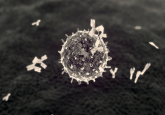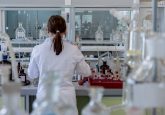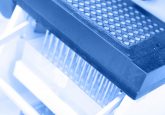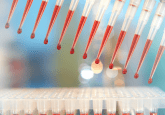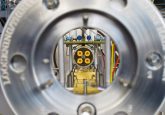Beyond the Abstract: an interview with Hetal Sarvaiya and Yuting Wang
In our new podcast series, we’re joined by a Bioanalysis author to review their publication’s biggest challenges, wider implications and next steps. In the final episode of series one, we’re joined by Hetal Sarvaiya and Yuting Wang from AbbVie (MA, USA), who talk about the challenges of having an international team working on their perspective article and the inspiration behind the work. The pair talk passionately about their paper and how the unique nature of AbbVie’s global team has helped shape their work.
The Bioanalysis article:
Bioanalytical strategy for the characterization and bioanalysis of biologics: a global, nonregulated bioanalytical lab perspective
Sarvaiya H, Niu S, Ladror DT et al. | Bioanalysis, 15(3), 133–148, (2023)
Keywords: • antibody–drug conjugates • bioanalysis • biologics • biotransformation • cellular disposition • characterization • hybrid LC–MS • ligand-binding assay • pharmacokinetic • post-translational modifications • stability
Over the past two decades, we have seen an increase in the complexity and diversity of biotherapeutic modalities pursued by biopharmaceutical companies. These biologics are multifaceted and susceptible to post-translational modifications and in vivo biotransformation that could impose challenges for bioanalysis. It is vital to characterize the functionality, stability and biotransformation products of these molecules to enable screening, identify potential liabilities at an early stage and devise a bioanalytical strategy. This article highlights our perspective on characterization and bioanalysis of biologics using hybrid LC–MS in our global nonregulated bioanalytical laboratories. AbbVie’s suite of versatile, stage-appropriate characterization assays and quantitative bioanalytical approaches are discussed, along with guidance on their utility in answering project-specific questions to aid in decision-making.
Read the full Research Article via Bioanalysis
Questions
- Would you like to firstly tell us a bit more about your perspective piece? [0:50]
- What inspired this publication? [3:10]
- What was it like working on a publication that spans so many teams, sites and platforms? [5:12]
- There are multiple characterization assays and quantitative bioanalytical approaches mentioned in the paper. Were there any in particular that you enjoyed writing about? [6:57]
- In 30 seconds, why should someone go and read the paper? [8:34]
About the speakers:
 Hetal Sarvaiya
Hetal Sarvaiya
Director, Quantitative Translational ADME Sciences (QTAS)
AbbVie (CA, USA)
Hetal Sarvaiya is a Director within the QTAS department at AbbVie and is based in the South San Francisco office. In her current role at AbbVie, she leads a global bioanalytical team that supports in vitro characterization and disposition as well as mass spectrometry-based quantitative bioanalysis of biologics across all therapeutic areas within the non-regulated environment. She also leads bioanalytical platform selection and implementation of integrative BA strategies across biologics projects from discovery through to development. Prior to merging with AbbVie, Hetal held several roles at Stemcentrx where she led the protein science team focusing on ADC conjugation, analytical, biophysical and bioanalytical characterization efforts. She has extensive experience (17+ years) in the application of mass spectrometry-based approaches for the characterization and quantitation of biotherapeutics. Prior to AbbVie, she had been at Merck (NJ, USA) and Momenta Pharmaceuticals (MA, USA), now a Janssen company.
 Yuting Wang
Yuting Wang
Sr. Scientist, Quantitative Translational ADME Sciences (QTAS)
AbbVie (MA, USA)
Yuting Wang is a Senior Scientist in the QTAS department at the Worcester MA site of AbbVie, where she functions as the bioanalytical lead for large-molecule biologics in the non-regulated LC-MS team. She supports pre-clinical early discovery/PK/PD/TK studies across a range of therapeutic areas and modalities, which include mAb, ADC and multi-specifics. She also serves as the bioanalytical liaison, providing scientific guidance for non-reg BA strategies and platform selection. Prior to AbbVie, Yuting completed her postdoctoral training at Washington University in St. Louis (MO, USA) and received her Ph.D. in Chemistry from the University of Florida (FL, USA).

